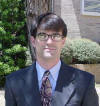|
Child-Centered
Early Childhood Music
by |
The Basics
Types of Centers ![]() Planning and Implementation
Advantages
Planning and Implementation
Advantages
Child-centered, child-selected music activities are an essential part of the early childhood music program. Many of the activities we present to our students are specialist-centered (i.e., the adult controls much, if not all, of what happens). Children need to have opportunities to develop their own musical knowledge independently from the specialist. This encourages seeking musical interactions outside our classroom. Isn't that what we want?
What follows are some ideas that will help you develop child-centered music practices. Much of the information is common knowledge among the ranks of early childhood teachers but may be unfamiliar to us. Essentially, this article presents ideas about how to construct music centers.
Things to Consider When Implementing Child-Centered Learning Centers
-
Experience, good or bad, changes the brain.
-
The child is the central figure in early childhood education.
-
Play is the primary mode of learning in early childhood.
-
Early childhood education experiences should promote childrenís cognitive, social, and emotional development.
-
There should be a balance between specialist-selected and child-selected activities.
Developmentally Appropriate
Practices
Children
mature and learn at different times. Additionally, learning is not
always linear. Therefore, it is developmentally inappropriate for young
children to consistently do the same thing at the same time for the entire
music period (i.e., circle time, group activities).
Choice
It
is important to remember that during center time children are given the
freedom to choose. It is not uncommon for a child to go to the same
center and engage in the same activity during every music period.
By the same token, if children choose not to participate during center
time, itís okay. They are still watching, listening, and learning
from the children who are engaged in musical activities.
| If you would like to be added to the TSMP Email Mailing List and receive periodic notifications of new articles and updates to this website, then please email TSMP.
The Texas School Music
Project is a source for ideas and information
concerning pedagogical
practices in the music classroom or rehearsal hall. The TSMP is a service provided to
all music specialists by the faculty
of
the Department of Music
at Stephen F. Austin State University. Copyright © 2002, Department of Music at Stephen F. Austin State University |
